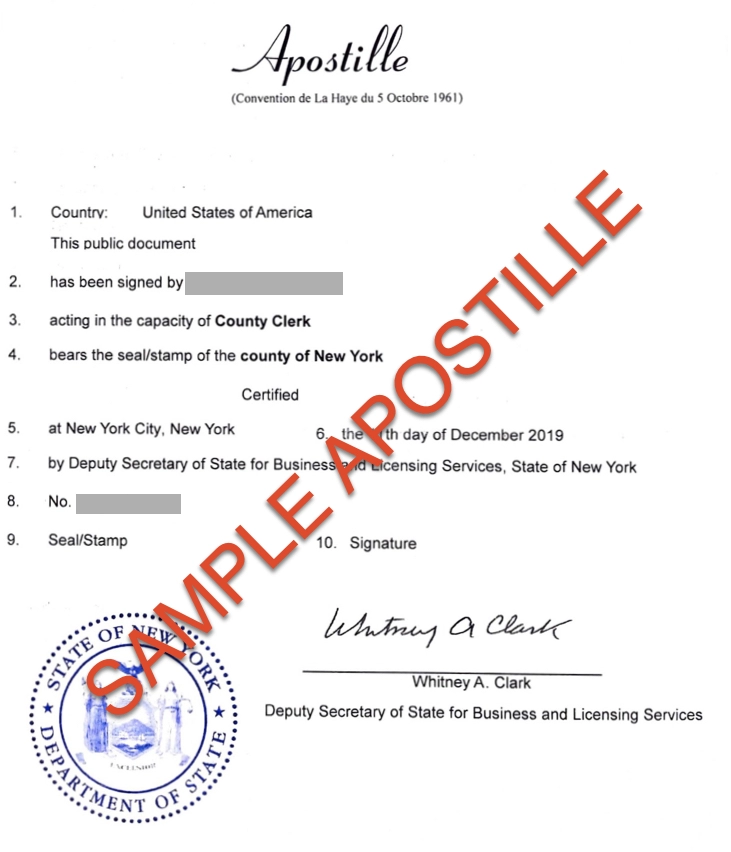Understanding the Significance of Apostille Qualification and Why It Is Essential for Legal Papers
Among the various systems available for this objective, apostille qualification stands out as a structured and widely identified approach. Comprehending the intricacies and effects of apostille qualification on legal papers is crucial for individuals and organizations engaging in cross-border tasks.
The Meaning of Apostille Certification
Apostille accreditation is a customized form of authentication that confirms the authenticity of a legal file for global use. This accreditation is important for ensuring that records coming from in one country are recognized as valid in one more, streamlining the procedure of cross-border deals, lawful proceedings, or personal matters like marriage or adoption. The Hague Apostille Convention of 1961 established the framework for this simplified accreditation process amongst participating nations.
To acquire an apostille accreditation, the assigned authority in the paper's country of origin should validate the document's authenticity before connecting the apostille. As soon as attached, the apostille ensures that the file will certainly be approved as valid in any kind of other nation that is component of the Apostille Convention, without the requirement for additional accreditation.
Benefits of Apostille for Legal Files
The use of apostille accreditation improves the worldwide acknowledgment process for lawful papers, offering substantial benefits in helping with cross-border interactions and legal formalities. By connecting an apostille certification, the document comes to be conveniently approved in nations that are component of the Hague Apostille Convention, removing the demand for more verification.
Furthermore, apostille certification improves the overall performance of lawful treatments by simplifying the process of verifying the legitimacy of a paper. Generally, the benefits of apostille certification for lawful records are instrumental in advertising smoother international involvements and making certain compliance with legal needs across boundaries.
Apostille Vs. Legalisation: Trick Differences
When distinguishing in between the procedures of apostille certification and legalization for lawful records, it is vital to recognize the essential distinctions in their corresponding verification methods. An apostille is a simplified type of legalisation that is approved amongst nations that are component of the Hague Apostille Convention.
This process can be a lot more taxing and pricey contrasted to getting an apostille. The selection between apostille certification and legalization depends on the details demands of the country where the paper will certainly be used.
Countries Accepting Apostille Certification

While the Hague Apostille Convention has actually dramatically streamlined the process of cross-border record authentication, there are still nations that are not celebration to the convention - Houston TX Apostille. As an outcome, papers destined for these countries may call for standard legalization procedures through consular offices or consular offices. It is important for companies and people dealing with click this worldwide transactions to confirm the details demands of the location nation to guarantee conformity with their lawful standards
Steps to Obtain Apostille for Papers
To obtain an apostille for your documents, you need to start by identifying the proper releasing authority in your nation. The issuing authority is typically the federal government division in charge of validating papers, such as the Assistant of State's workplace. Once you have recognized the proper authority, the next action is to guarantee that your paper fulfills all the needs for apostille certification. These demands normally consist of having a signature from a recognized authorities, such as a notary public, and any kind of necessary supporting files.
After validating that your file meets the criteria, you will certainly require to submit an apostille application offered by the releasing authority. This kind will certainly need details about the file being authenticated and the nation where it will be used. In addition to the finished application, you will look at this web-site likely require to send the original document, a copy of your recognition, and any applicable charges.

Conclusion
Finally, apostille qualification plays a crucial function in making certain the credibility and validity of legal documents for international usage (Houston TX Apostille). Recognizing the importance of apostille qualification is crucial for people and organizations browsing the intricacies of cross-border transactions and lawful matters. By obtaining apostille qualification, events can improve the procedure of paper verification and authentication, eventually conserving time and resources in the global sector
To acquire an apostille accreditation, the assigned authority in the paper's country of beginning have to confirm the record's authenticity before attaching the apostille. Once attached, the apostille makes sure that the paper will be approved as legitimate in any type of other nation that is component of the Apostille Convention, without the requirement for additional qualification.
By connecting an apostille certificate, the file comes to be conveniently accepted in nations that are component of the Hague Apostille Convention, eliminating the requirement for more verification.Distinguishing in between apostille accreditation and legalization discloses the differing acceptance of these authentication approaches across different nations, with some this website nations specifically acknowledging and adhering to the apostille process. The apostille qualification is extensively accepted among countries that are component of the Hague Apostille Convention, which currently has 118 participant states.